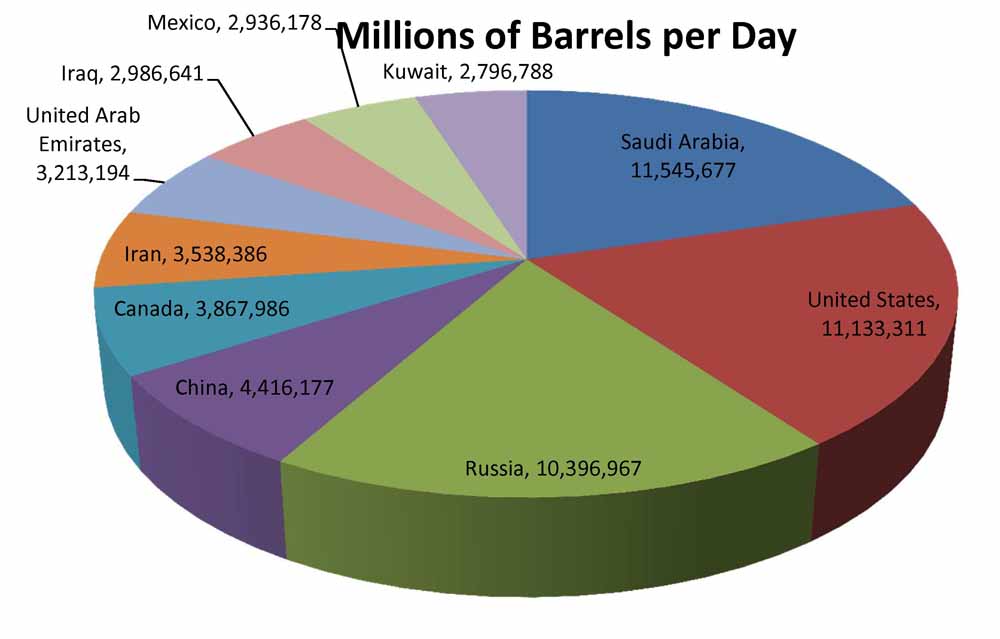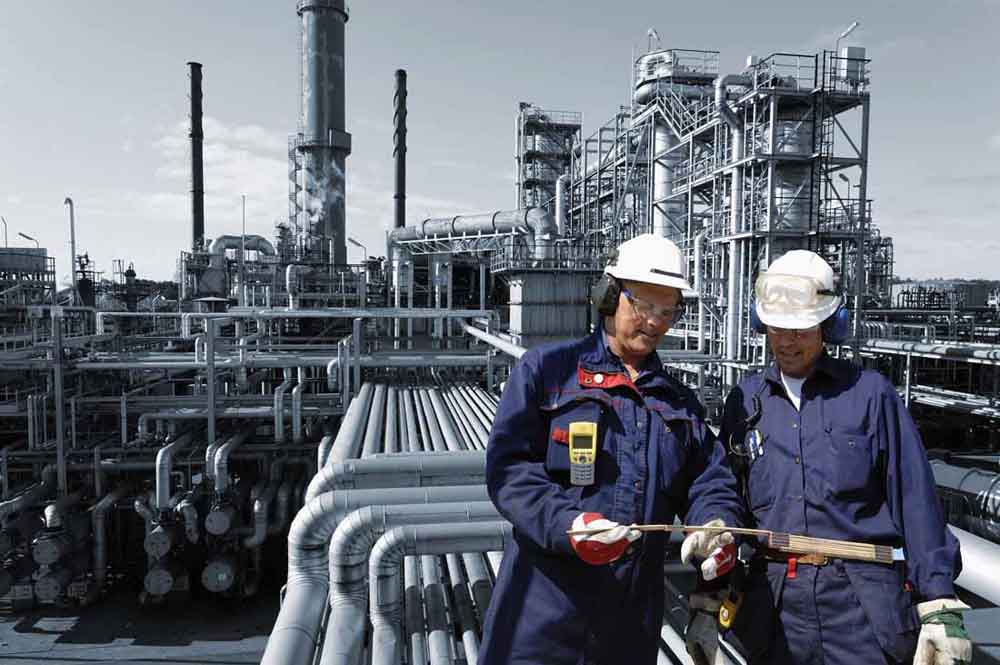Welcome to an exploration of the top 10 oil-producing countries in the world for the year 2023. Oil is a crucial global resource, powering economies, industries, and transportation systems around the globe. In this journey, we will delve into the nations that lead the world in oil production, examining their contributions to the global energy landscape, the factors influencing their oil production, and the implications for both their domestic economies and the international community. Join us as we unveil the dynamic landscape of oil production on a global scale in 2023.
So its importance can not be denied because its precious resources are also known as black gold.The nations having largest reserves in their geographical boundaries are considered the luckiest and richest countries. Following is a list of top ten countries which are considered the largest oil producers in the world.
United States: The United States became a global oil production powerhouse thanks to the shale oil boom. Texas and North Dakota are key contributors. This surge in production has made the U.S. less reliant on oil imports, influencing global oil prices.
Saudi Arabia: Saudi Arabia has one of the world’s largest proven oil reserves, and it plays a crucial role in OPEC. It’s known for its vast oil fields and is a major exporter of crude oil.
Russia: Russia has substantial oil reserves, primarily located in Siberia. It’s a major player in the global oil market, exporting significant amounts of crude oil and petroleum products.
Canada: Canada’s oil production is dominated by oil sands extraction in Alberta. It’s a vital source of oil for North America, with a focus on export to the United States.
China: China’s growing economy has driven an increase in domestic oil production to meet its energy demands, with a mix of conventional and unconventional oil sources.
Iraq: Iraq possesses one of the world’s largest proven oil reserves, mainly located in the Basra region. Despite political instability, it’s a significant oil producer.
United Arab Emirates (UAE): The UAE is a prominent OPEC member with substantial oil reserves, particularly in Abu Dhabi. It’s known for its modern oil infrastructure and export capacity.
Iran: Despite international sanctions and political challenges, Iran maintains a significant oil production capacity, primarily exporting crude oil.
Kuwait: Kuwait is an OPEC member with substantial oil reserves and a well-developed oil industry, contributing to the global oil supply.
Brazil: Brazil has emerged as a major player in offshore oil production, particularly in its pre-salt fields off the coast. It’s known for its deepwater drilling and production capabilities.
These countries vary in terms of their oil reserves, production methods, and geopolitical significance, but all play critical roles in shaping the global oil market.
what is crude oil?
Crude oil is a naturally occurring, unrefined fossil fuel found underground and underwater. It consists of hydrocarbons and other organic materials. This thick, dark liquid varies in composition and color depending on its source. It serves as a primary energy source for transportation, electricity, heating, and the production of various products.
Crude oil undergoes refining to separate components like gasoline, diesel, and jet fuel. It is finite and non-renewable, with environmental concerns such as greenhouse gas emissions and oil spills. Efforts to develop sustainable energy alternatives aim to reduce reliance on crude oil.
What are the key factors driving oil production in these countries?
The key factors driving oil production in the top oil-producing countries include abundant geological reserves, advancements in drilling technologies, economic incentives, global oil prices, political stability, favorable regulatory environments, well-developed infrastructure, continuous exploration, and investment efforts. Global demand, geopolitical considerations, environmental regulations, and market dynamics also play significant roles.
These factors, often interrelated, influence production decisions and levels, impacting a country’s economic growth, government revenue, and global market competitiveness. Additionally, technological innovation, coupled with political and environmental considerations, is shaping the future of oil production, with an increasing emphasis on sustainability and cleaner energy solutions.
What impact does oil production have on global energy markets and prices?
Oil production significantly impacts global energy markets and prices. Increases in production can stabilize prices and meet growing energy demands, while disruptions lead to supply shortages and price spikes. Oil’s high liquidity makes its prices susceptible to geopolitical events, supply fluctuations, and market sentiment, resulting in price volatility.
Production competition among countries influences global prices and can benefit consumers but challenge oil producers’ profitability. Moreover, oil price fluctuations affect other energy sources, impacting their competitiveness. These price shifts have substantial economic consequences, affecting transportation, manufacturing, inflation, and investment decisions, all while influencing the global transition to cleaner energy sources.
Sources of USA for oil ?
The United States sources oil from various domestic and international suppliers. Domestically, the U.S. produces a significant portion of its oil, primarily from regions like Texas, North Dakota, Alaska, and the Gulf of Mexico. Shale oil production, made possible by hydraulic fracturing (fracking), has significantly boosted domestic output.
Internationally, the U.S. imports oil from several key trading partners, including Canada, Mexico, Saudi Arabia, Iraq, and other countries. Canada is the largest supplier, providing a substantial amount of crude oil through pipelines, particularly from the oil sands in Alberta. The U.S. also imports oil from OPEC nations, although the share has decreased due to domestic production growth.
These diverse sources ensure a stable supply of oil to meet the country’s energy needs and maintain energy security.



Really oil has become the basic need of people so its consumption rate has been increasing day by day. Good information about oil producing nations. Thanks